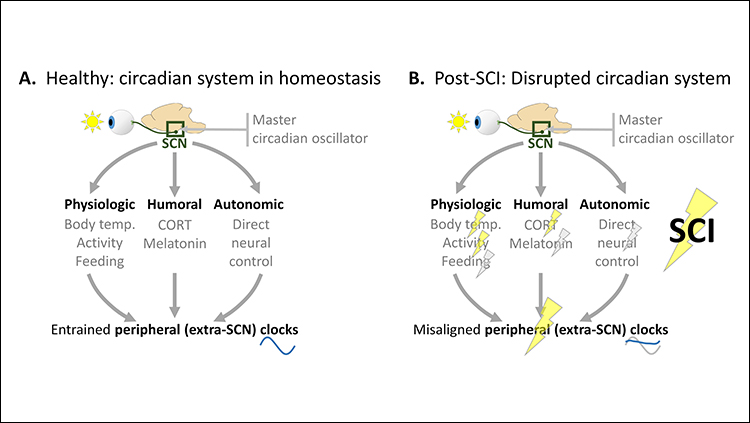Timing Could Mean Everything After Spinal Cord Injury

Moderate damage to the thoracic spinal cord causes widespread disruption to the timing of the body's daily activities, according to a study of male and female rats published in eNeuro. If this also occurs in humans, transitioning patients back to the normal rhythms of their daily life after a spinal cord injury could help prevent further dysregulation of essential biological processes.
Andrew Gaudet and colleagues found their rat model of spinal cord injury altered daily rhythms in body temperature and active time as well as the expression of genes and hormones that synchronize the timing of other body processes. These findings suggest efforts to restore a patient's normal routines — for example, encouraging beneficial sleeping and eating schedules and optimizing the timing of physical rehabilitation — could promote recovery. Future studies of spinal cord injury that incorporate circadian factors could inform the development of such "chronotherapies."
Article: Spinal cord injury in rats disrupts the circadian system
Andrew Gaudet (The University of Texas at Austin, USA), andrew.gaudet@utexas.edu

















